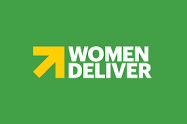Advocating for a Stronger Evidence Base for Gender Equality
Posted by Nicole Moran on August 26, 2020 at 3:16 pm

Executive Summary
Gender equality is a key ingredient to the successful implementation of the United Nations’ 2030
Agenda for Sustainable Development. However, at the current pace, there are no countries on
track to achieve the Sustainable Development Goals (SDGs) by 2030, and it will take another
100 years to reach gender equality.1,2 Related to these trends, there are a myriad of global,
national, and sub-national gender data and knowledge gaps. To address deep-seated gender
inequities, countries need intersectional data to focus efforts and track progress. When
the diverse perspectives of girls and women are incorporated into data and evidence collection,
and then translated into action, the resulting policies and programs are more effective and their
implementation can be more effectively monitored.
Advocates, academic and research organizations, civil society organizations, the private
sector, donors, and governments can advocate for, collect, analyze, and use gender data to
build the case for gender equality. Together, efforts to fill gender data and knowledge gaps
can be leveraged to make bigger and bolder commitments to improve the lived realities of
all people, including girls and women.
In an effort to collate and document these unknowns, Women Deliver conducted a desk review of
existing gender data gaps with an intersectional lens. The findings are based on Women Deliver’s
own work and the work undertaken by other organizations in this space. This working paper
contains more than 150 gender data and knowledge gaps across nine thematic areas. The gaps
demonstrate where the collection of new data, or the expansion of an evidence base, is necessary
to advance gender equality efforts.
To read Women Deliver’s full report, please click here
